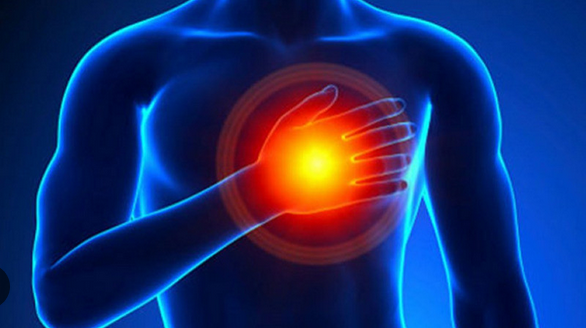What That Pain on the Left Side of Your Chest Could Really Mean
Feeling pain on the left side of your chest can be alarming—and for good reason. While not all chest pain is life-threatening, it’s not something to ignore. The left side of your chest houses several vital organs, including the heart and parts of the lungs, meaning discomfort there could signal something serious—or something surprisingly minor……..CONTINUE READING
Let’s break down the major causes of pain on the left side of the chest:
1. Heart-Related Causes
▪ Angina
Occurs when your heart doesn’t get enough oxygen-rich blood. Angina causes chest discomfort, especially during physical activity or stress.
▪ Heart Attack
A blockage in one or more coronary arteries can lead to a heart attack. Symptoms often include crushing chest pain, left arm pain, shortness of breath, and nausea.
▪ Pericarditis
This is the inflammation of the lining around the heart. It can cause sharp, stabbing pain that worsens when lying down or taking deep breaths.
2. Lung-Related Causes
▪ Pleurisy
Inflammation of the lung lining can cause chest pain that worsens with breathing or coughing.
▪ Pulmonary Embolism
A blood clot in the lungs can cause sudden, sharp chest pain, along with shortness of breath and a rapid heartbeat.
3. Digestive Causes
▪ Acid Reflux / GERD
Acid from the stomach can flow into the esophagus, mimicking heart pain. Often described as a burning sensation, this can feel worse after eating.
▪ Gas or Bloating
Believe it or not, trapped gas in your stomach or intestines can radiate pain to the chest area, causing brief but sharp discomfort.
4. Musculoskeletal Causes
▪ Muscle Strain
Heavy lifting, poor posture, or trauma can strain the chest muscles, leading to soreness or tightness on the left side.
▪ Costochondritis
This is inflammation of the cartilage connecting the ribs to the breastbone, causing sharp or aching pain that worsens with movement.
When to Seek Immediate Medical Help
Call emergency services if your chest pain:
-
Lasts more than a few minutes
-
Feels crushing or radiates to your arm, neck, or jaw
-
Comes with shortness of breath, dizziness, or sweating
Even if symptoms are mild, it’s better to be safe and get evaluated—especially if you’re over 40 or have risk factors like smoking, high blood pressure, or diabetes.






